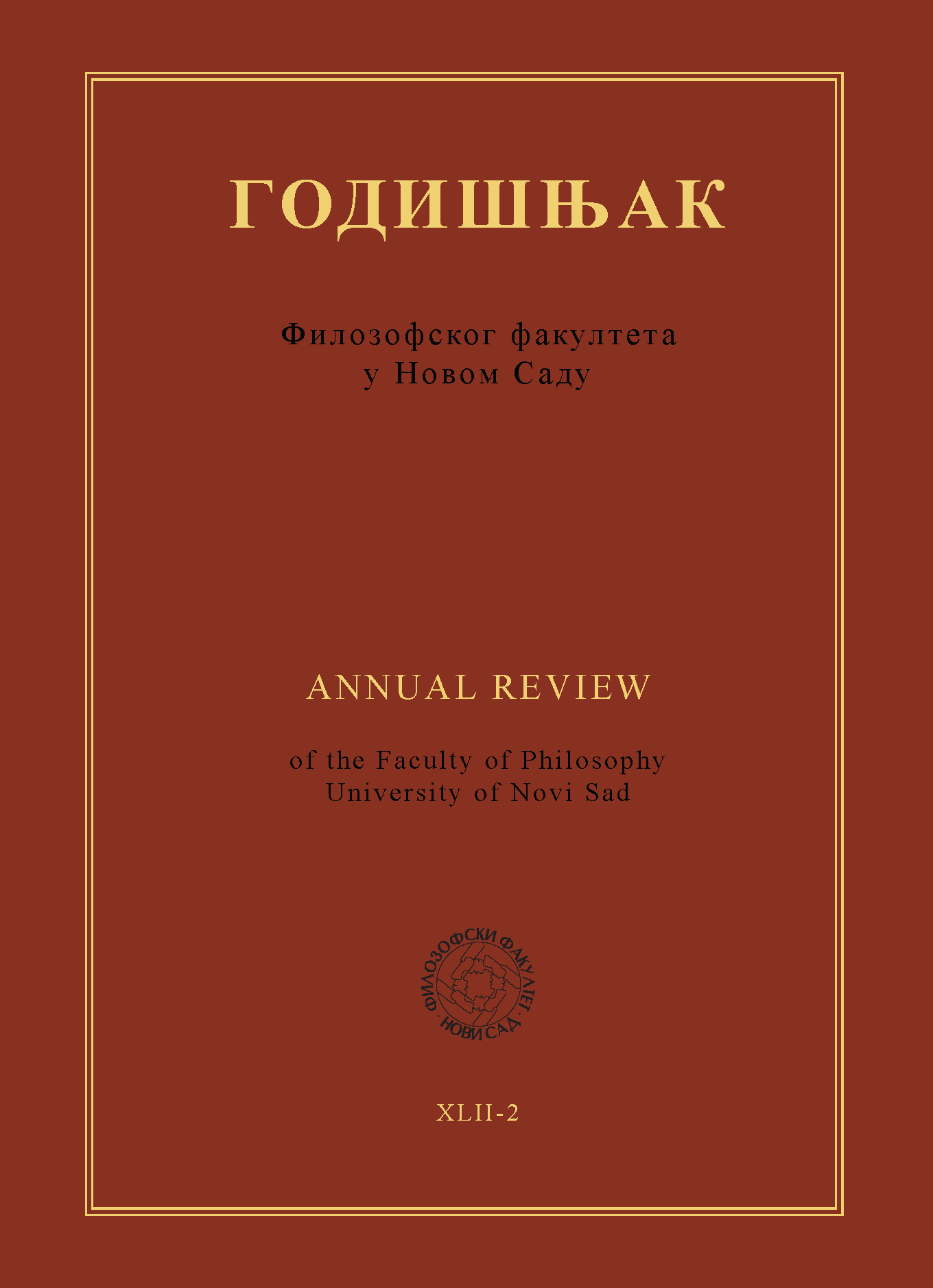KRITIKA I UNIVERZALNOST FILOZOFIJE Osvrt na Hegelov spis „O suštini filozofske kritike“
Главни садржај чланка
Сажетак
Autorka je u radu analizirala određenje filozofske kritike u kontekstu jenskog perioda Hegelovog filozofskog razvoja. U fokusu je tekst O suštini filozofske kritike, kao ono mesto u kome se filozofska kritika pokazuje kao sredstvo afirmacije univerzalne ideje filozofije. Kritika je shvaćena prevashodno kao svest filozofije o vlastitoj epohi, odnosno kulturnom i obrazovnom horizontu koji je karakteriše. Ovaj horizont je u temelju određen misaonim iskustvom kritičke filozofije, što se ogleda u subjektivističkom principu filozofije kao dominantnom trendu epohe. Pokazuje se kako je primarni zadatak filozofske kritike sučeljavanje s vlastitom povesnom realnošću i postojećim misaonim tvorevinama, a polja ograničenja filozofije predmet su izuzetno važnog i svestranog rada kritike.
Downloads
Metrics
No metrics found.
Детаљи чланка
Референце
Bristow, William F. (2007). Hegel and the Transformation of Philosophical Critique, Oxford
University Press.
Bubner, Rüdiger. (1969). „Problemgeschichte und systematischer Sinn einer Phänomenologie“,
Hegel-Studien 5: 129 – 159.
Bubner, Rüdiger. (2003). The Innovations of Idealism, New York: Cambridge University Press.
Buchner, Hartmut. (1965). „Hegel und das Kritische Journal der Philosophie“. Hegel-Studien 3:
95 – 156.
De Boer, Karin. (2010). “Hegel’s Conception of Immanent Critique: Its Sources, Extent and
Limit”, In: (ed.) de Boer, K. And Sonderegger, R. 2010. Conceptions of Critique in Modern
and Contemporary Philosophy, New York: Palgrave Macmillan: 83–100.
Hartmann, Eduard von. (1868). Über dialektische Methode. Historisch-kritische
Untersuchungen, Berlin: Carl Dunckers Verlag.
Hegel, G. W. F. (1970a). Werke. Band 2. Frankfurt am Main: Suhrkamp Verlag.
Hegel, G. W. F. (1970b). Werke. Band 3. Frankfurt am Main: Suhrkamp Verlag.
Hegel, G. W. F. (1970c). Werke. Band 8. Frankfurt am Main: Suhrkamp Verlag.
Lauer, Christopher. (2010). The Suspension of Reason in Hegel and Schelling, New York:
Continuum.
Smith, John H. (1985). “Rhetorical Polemics and the Dialectics of “Kritik” in Hegel’s Jena
Essays”. Philosophy & Rhetoric, 18 (1): 31–57.
Trede, Johann Heinrich. (1972). „Hegels frühe Logik (1801 – 1803/4). Versuch einer
systematischer Rekonstruktion“. Hegel-Studien 7: 123–168.




